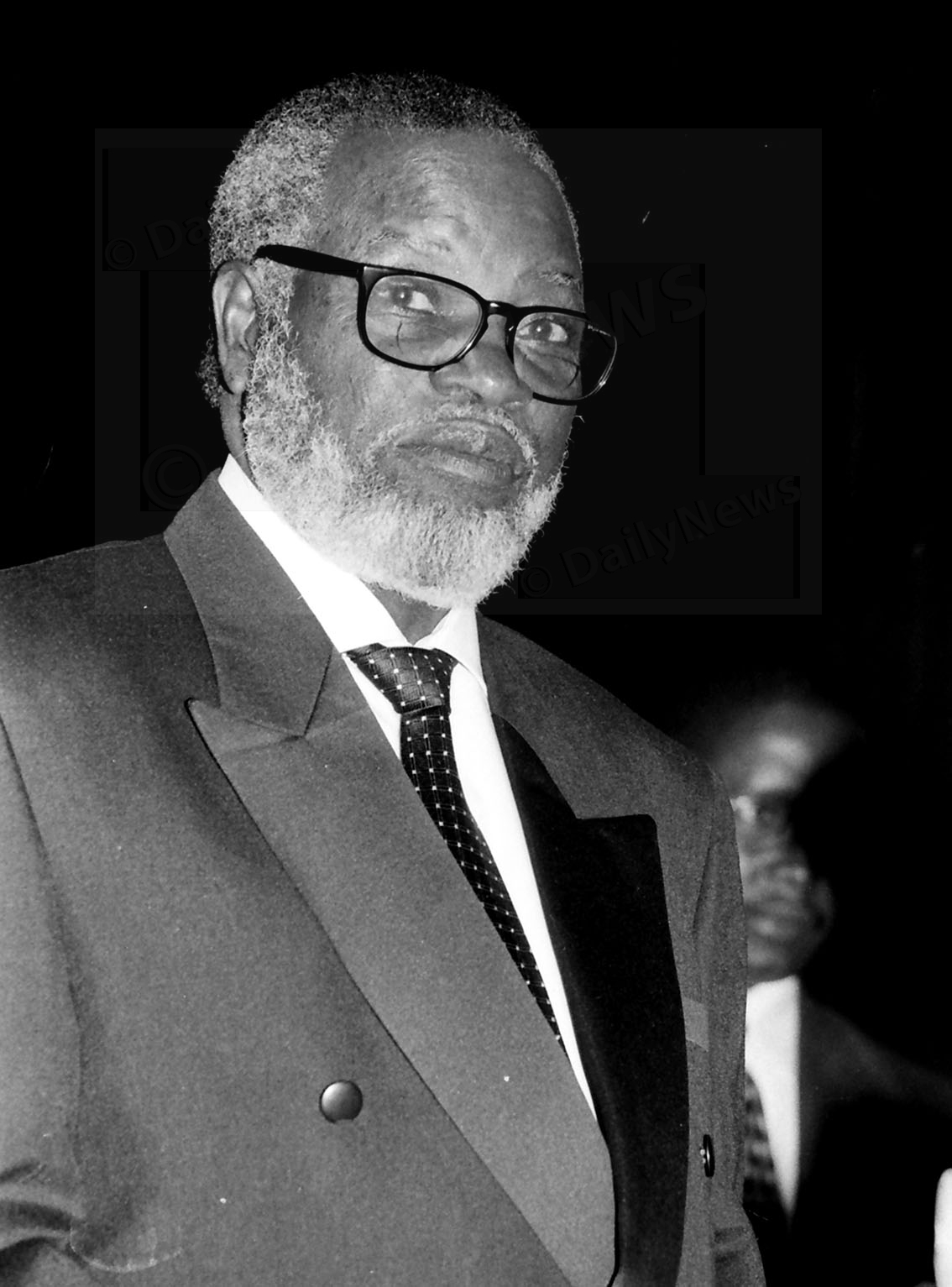Bluetown home to Sam Nujoma
13 Feb 2025
More than just a name in the history books, the late founding president of Namibia, Dr Sam Nujoma was a familiar face in Francistown’s Blue Town location.
News of his passing at age 95 last week brought a wave of sorrow in the city, prompting reflection on his time spent in their midst.
Dr Nujoma, along with fellow Namibian liberation leaders such as former presidents, Dr Hefikepunye Pohamba and Dr Hage Geingob (who passed away last year), and outgoing president Nangolo Mbumba, had all found refuge in Francistown, making the city home for liberation movements.
These leaders resided in a modest house, affectionately referred to as the ‘Blue Town White House’. It enjoyed a unique security detail, the unwavering protection of the Blue Town community itself. It was a testament to the strong bonds forged during this period of shared struggle.
While details about Dr Nujoma’s time in Botswana remain relatively undocumented, stories persist about his days spent in the modest white building.
According to Ms Sylvia Morima, a former long-time resident of Blue Town, the White House, which initially was a government camp, became a hub of activity, where Dr Nujoma met countless other liberation icons en route to Lusaka, Zambia, the headquarters of the South West Africa People’s Organistion and the African National Congress.
“Dr Nujoma’s time in Blue Town was not just a temporary stay; it was a chapter in the history of Francistown and Namibia’s struggle for freedom. His legacy will forever be intertwined with the city, a reminder of the shared history and unwavering support offered by the people of Francistown to those fighting for freedom and self-determination," said Ms Morima.
She explained that Dr Nujoma held a special place in the hearts of Francistown residents, particularly those in Blue Town adding that, “The city mourns not just a national leader, but a neighbour and friend.”
According to Ms Morima, the former president and fellow Namibian leaders were known figures in the community. They mingled with local residents, forging personal connections that extended far beyond the political realm.
Ms Morima vividly recalled her encounters with the late Dr Nujoma. She described him as a commanding figure, dark-complexioned, and well groomed.
She said Dr Nujoma’s appearance belied his struggle background, as he looked less like a person from a struggling nation fighting for independence but more like a soldier of repute, with a strong, muscular build and a commanding presence with his neatly kept beard.
Ms Morima remembers Dr Nujoma’s kindness and generosity. She recounted how he and his colleagues would prepare meals for those around them, fostering a sense of community.
When asked about the inherent dangers of their involvement in the liberation struggle, and the potential threats from rivals, Ms Morima responded with quiet faith, “We knew our lives were at risk, but things unfolded as God intended.”
She recounted a particularly harrowing incident the day Dr Nujoma and his entourage were to cross into Zambia. They left their Blue Town residence to seek refuge elsewhere.
That very night, their abandoned home was bombed. Ms Morima wished to attend Dr Nujoma’s funeral if she was not in the twilight of her years.
Mr Soul Moremi, a living encyclopedia of Francistown’s history, though he never met Dr Nujoma personally, offered a compelling account of the White House.
“This unassuming building held a significant place in the town’s past, serving as a refuge for many who would later lead their nations, particularly Namibians,” he added.
He explained that the recent passing of Hage Geingob, another figure linked to this history, resonated deeply within the community, a poignant reminder of the White House’s enduring legacy and the profound impact it had on the region’s political landscape.
The building, Mr Moremi suggested, stands as a silent testament to the struggles and triumphs of those who sought freedom and ultimately shaped the destinies of their nations.
He further indicated that Francistown held a unique place in the history of Namibia. Now, with the passing of Dr Nujoma, the city once again grieves the loss of a figure deeply connected to its community.
“These leaders, including Hefikepunye Pohamba and Nangolo Mbumba, found temporary homes in the city, forging relationships with residents and creating memories that continue to shape the connection between the two nations,” he added. ENDS
Source : BOPA
Author : Thamani Shabani
Location : Francistown
Event : Interview
Date : 13 Feb 2025






